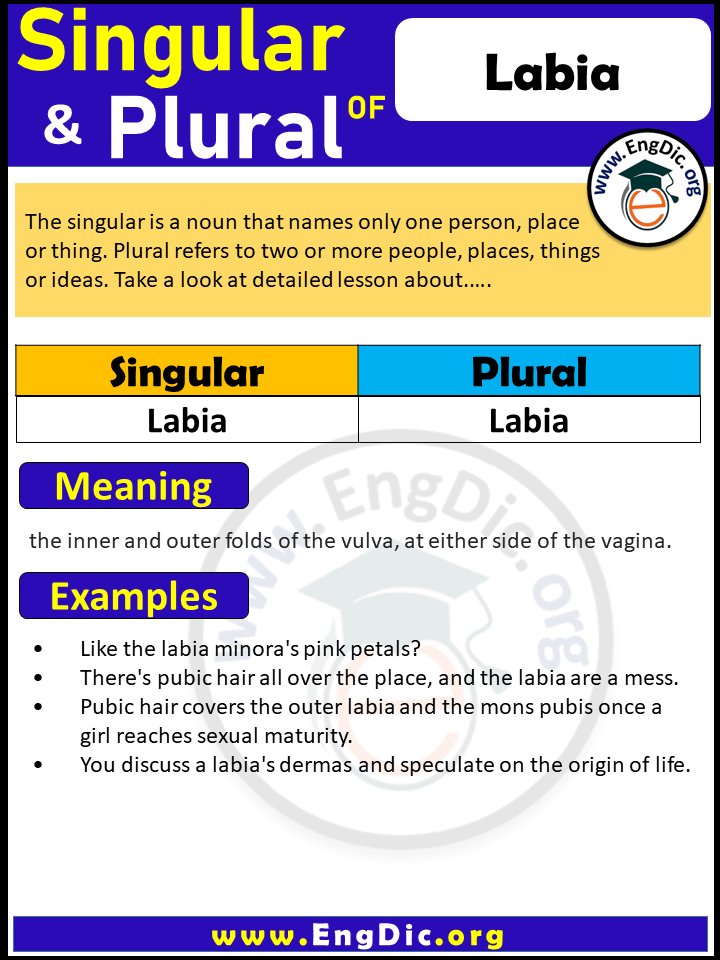Meaning of Bacteria
The meaning of BACTERIA is: a member of a large group of unicellular microorganisms which have cell walls but lack organelles and an organized nucleus, including some that can cause disease.
Singular and Plural of Bacteria
Bacteria is a plural word, the singular word is bacterium.
| Singular | Plural |
| Bacterium | Bacteria |
Bacterium as a Singular Noun in Example Sentences:
- The bacterium multiplied rapidly in the nutrient-rich environment.
- A single bacterium is invisible to the naked eye.
- The scientist isolated a bacterium from the contaminated water sample.
- It takes only one bacterium to cause an infection.
- The bacterium’s ability to adapt to harsh conditions is remarkable.
- The researchers studied the behavior of a bacterium under different temperature conditions.
- The presence of a pathogenic bacterium in the food can lead to food poisoning.
- The bacterium plays a crucial role in the decomposition of organic matter.
- The student observed a live bacterium under the microscope.
- The bacterium’s resistance to antibiotics posed a significant challenge for treatment.
Bacteria as a Plural Noun in Example Sentences:
- They used disinfectant to kill the harmful bacteria on surfaces.
- The doctor prescribed antibiotics to treat the infection caused by the bacteria.
- The microbiology lab conducts research on various types of bacteria.
- The dish soap effectively eliminates most common bacteria.
- The immune system fights off invading bacteria to keep the body healthy.
- They analyzed the growth patterns of different strains of bacteria.
- The scientist identified multiple species of bacteria in the water sample.
- The petri dish contained colonies of harmful bacteria.
- The antibiotics target specific types of bacteria.
- They studied the interaction between bacteria and other microorganisms.
Singular Possessive of Bacteria
The singular possessive form of “Bacteria” is “bacterium’s”.
Examples of Singular Possessive Form of Bacteria:
- The bacterium’s genetic makeup was analyzed in detail.
- The bacterium’s ability to survive in extreme environments is fascinating.
- The researcher studied the bacterium’s response to different stimuli.
- Understanding the bacterium’s metabolism is crucial for developing new antibiotics.
- The bacterium’s outer membrane protects it from the host’s immune system.
- The scientist discovered a new strain of the bacterium’s DNA.
- The bacterium’s presence in the body can lead to various diseases.
- The team investigated the bacterium’s resistance to commonly used disinfectants.
- The bacterium’s role in nutrient cycling within ecosystems is well-studied.
- The student observed the movement of the bacterium’s flagella under the microscope.
Plural Possessive of Bacteria
The plural possessive form of “Bacteria” is “Bacteria’s”.
Examples of Plural Possessive Form of Bacteria:
- The doctors prescribed antibiotics to treat the patients’ bacteria’s infections.
- The lab technicians analyzed multiple samples’ bacteria’s DNA.
- The researchers studied different bacteria’s resistance mechanisms.
- The microbiology students observed various bacteria’s growth patterns.
- The scientists studied the ecosystem’s bacteria’s interactions.
- The food safety regulations targeted multiple sources’ bacteria’s contamination.
- The bioremediation project focused on multiple sites’ bacteria’s activity.
- The farmers used different methods to control their crops’ bacteria’s growth.
- The marine biologists researched the ocean’s diverse bacteria’s communities.
- The environmentalists monitored the river’s bacteria’s pollution levels.






